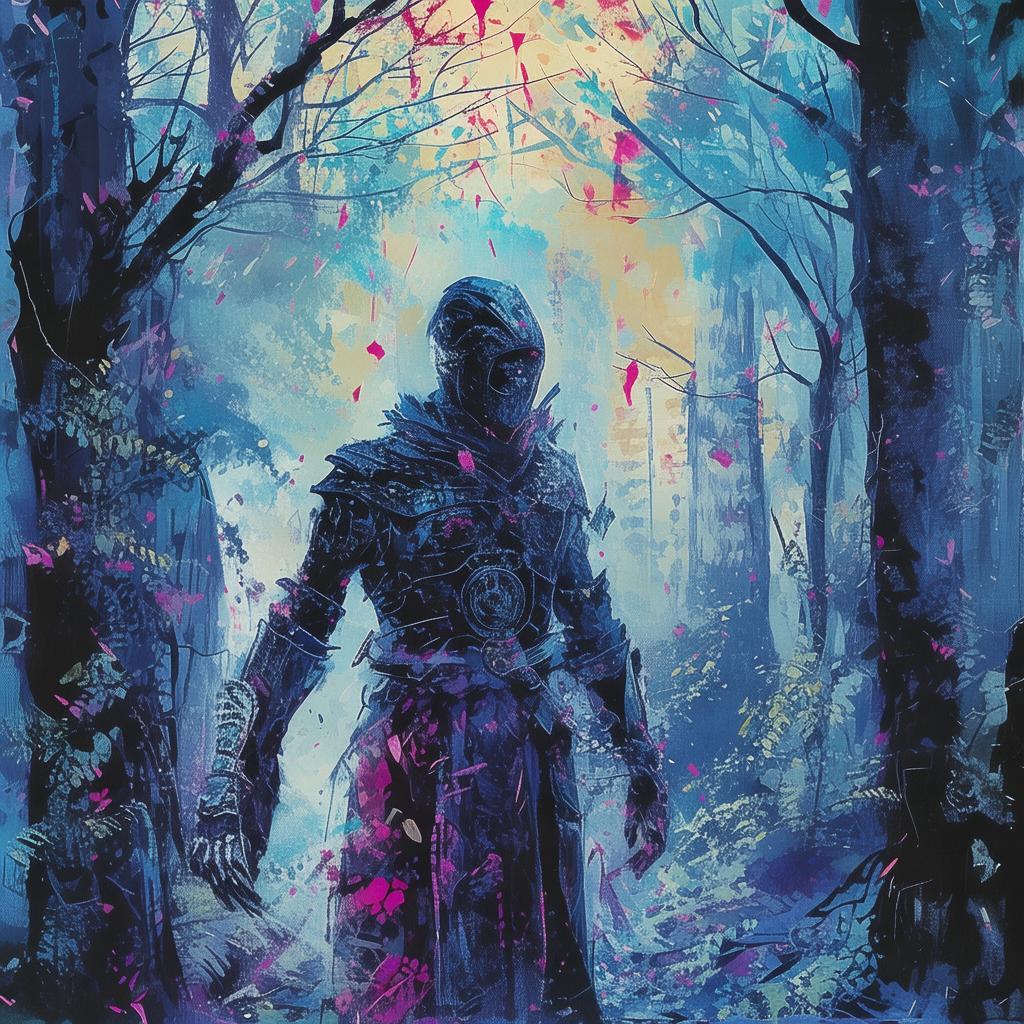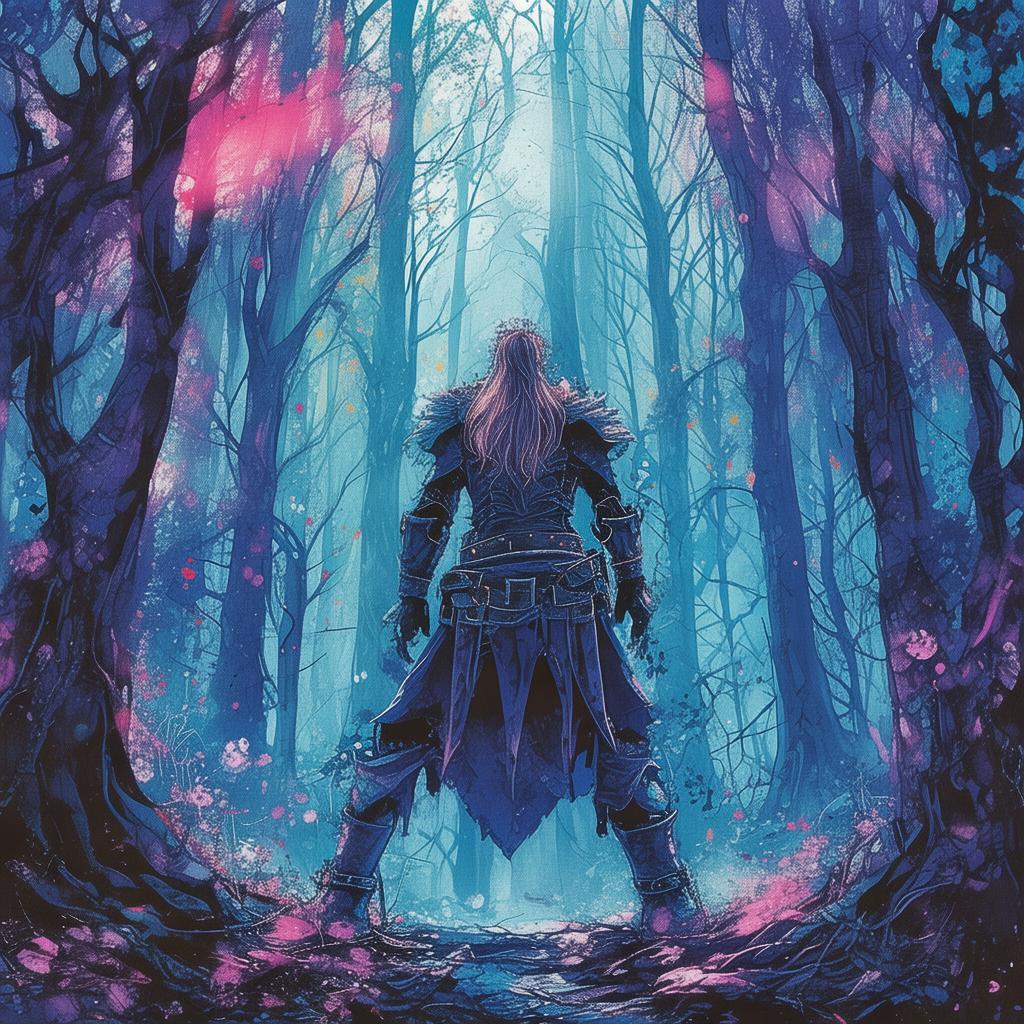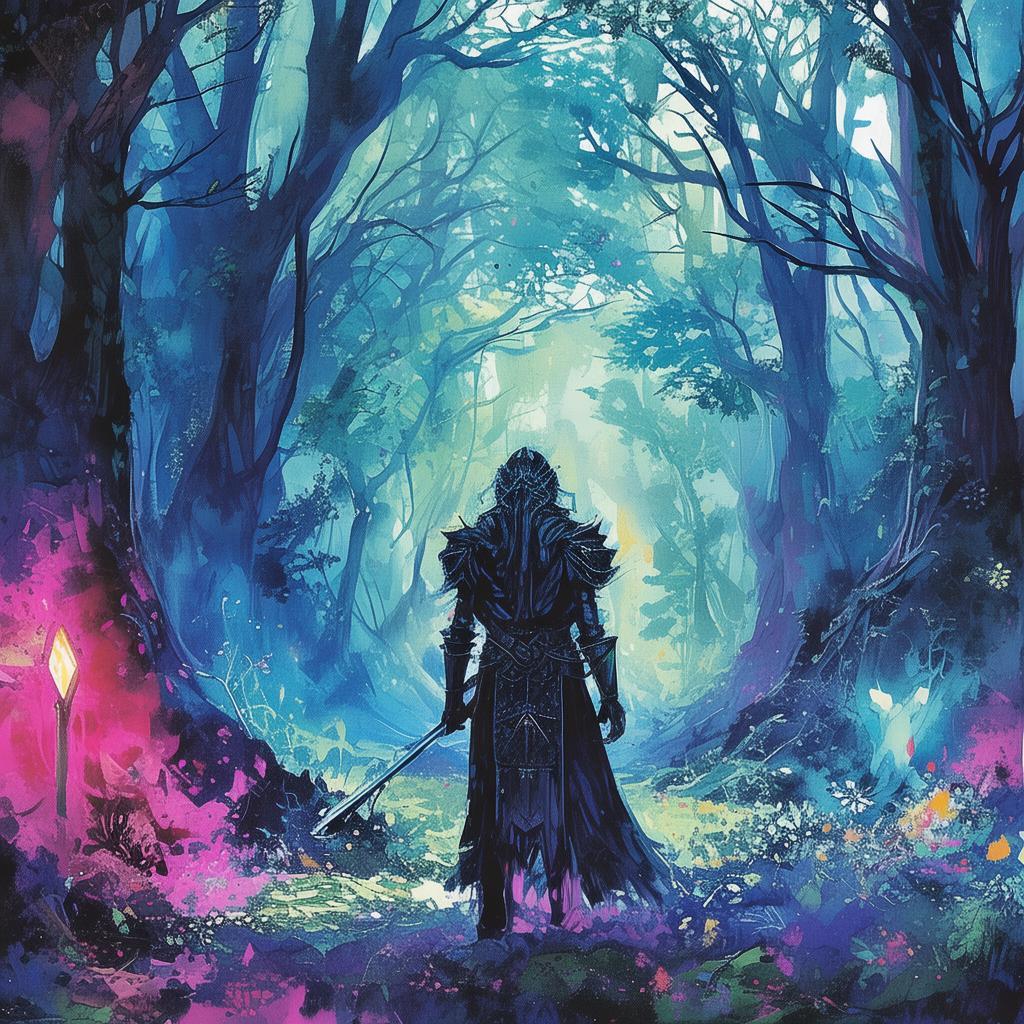The Echoes of the Past: The Requiem of Qingming
In the heart of ancient China, where the whispers of the past are as tangible as the present, there was a legend that only the bravest dared to hear. It was whispered during the Qingming Festival, a time when the living honor the dead, and the veil between worlds is at its thinnest. The legend spoke of a symphony, not of strings or woodwinds, but of the ephemeral melodies that could only be heard by those who had truly lost everything.
The story began with a young girl named Li, whose life was as vibrant as the blossoming cherry blossoms that adorned the ancient streets of her village. She was a dreamer, with eyes that sparkled with the promise of adventure. But fate had other plans for Li. One fateful Qingming, as she wandered through the serene cemetery, she stumbled upon an old, weathered scroll hidden beneath a stone.
The scroll, yellowed with age, contained the score of a symphony, The 150th Requiem Qingming's Ephemeral Symphony. It was said that this symphony could only be played by someone who had given up everything—love, hope, and life itself. The melody was a requiem, a farewell to the world, and it was said that those who heard it would be forever changed.

Li, driven by a strange compulsion, decided to learn the symphony. She spent days and nights in the solitude of her room, her fingers dancing over the keys of an old piano, her heart aching with the beauty and sorrow of the music. As she played, she felt a strange connection to the melodies, as if they were speaking to her, telling her a story she had never heard.
One night, as she played the final note, the room was filled with a haunting glow. Li looked up to see the ghostly figure of a young man, his eyes filled with sorrow and longing. He was the composer of the symphony, a man who had given up everything for love, only to have it torn from him in the most cruel of fates.
"Who are you?" Li asked, her voice trembling with fear and curiosity.
"I am Xiao," the ghost replied, his voice a soft whisper that seemed to echo through the ages. "I composed this symphony for my lost love, but it was never meant to be heard. Now, I am bound to this world, forever trapped in the music I created."
Li felt a pang of sympathy for Xiao, and she knew that she had to help him. She began to search for clues about Xiao's past, her heart heavy with the weight of the symphony's sorrow. She discovered that Xiao had been a musician, a man who had given up his dreams to follow his heart. But his love had been unrequited, and in his despair, he had composed the requiem, a farewell to his love and to life itself.
As Li delved deeper into Xiao's story, she realized that she was not just learning a piece of music; she was learning about love, loss, and the enduring power of the human spirit. She felt a growing connection to Xiao, as if they were two souls bound by the requiem.
One day, as Li played the symphony for the villagers, the music seemed to reach beyond the walls of the village, touching the hearts of those who had lost loved ones. The villagers began to gather, drawn by the haunting beauty of the music, and Li realized that she had found her purpose.
She played the requiem every Qingming, and each time, she felt Xiao's presence with her. Together, they honored the memory of those who had passed, and they brought comfort to those who were still living. The legend of the 150th Requiem Qingming's Ephemeral Symphony grew, and it became a symbol of hope and remembrance.
Years passed, and Li grew older, but her love for the music and for Xiao never faded. She continued to play the requiem, and the villagers continued to gather, their hearts touched by the music that seemed to carry the weight of the ages.
And so, the legend of the 150th Requiem Qingming's Ephemeral Symphony lived on, a testament to the power of love, loss, and the enduring connection between the living and the dead. The music, once a requiem, had become a symphony of hope, a reminder that even in the darkest of times, there is always light.
✨ Original Statement ✨
All articles published on this website (including but not limited to text, images, videos, and other content) are original or authorized for reposting and are protected by relevant laws. Without the explicit written permission of this website, no individual or organization may copy, modify, repost, or use the content for commercial purposes.
If you need to quote or cooperate, please contact this site for authorization. We reserve the right to pursue legal responsibility for any unauthorized use.
Hereby declared.









